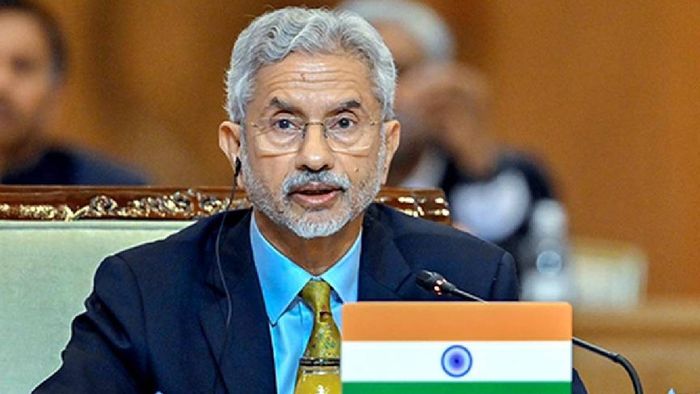Terrorism hinders trade: S Jaishankar at SCO summit in Pakistan
Speaking at the summit, Jaishankar highlighted the necessity of authentic partnerships and stability for fostering development and growth within the region.

- Oct 16, 2024,
- Updated Oct 16, 2024, 1:23 PM IST
During the 23rd Meeting of the Shanghai Cooperation Organisation (SCO) Council of Heads of Government held in Islamabad on October 16, 2024, Indian External Affairs Minister S. Jaishankar underscored that terrorism and extremism across borders pose significant barriers to trade, energy flows, and connectivity.
Speaking at the summit, Jaishankar highlighted the necessity of authentic partnerships and stability for fostering development and growth within the region. “Our endeavours will progress only when our commitment to the Charter remains firm. It is axiomatic that development and growth requires peace and stability,” he stated, emphasizing the need to counter what he termed the ‘three evils’—terrorism, extremism, and separatism.
Jaishankar further remarked, “If activities across borders are characterized by terrorism, extremism, and separatism, they are hardly likely to encourage trade, energy flows, connectivity, and people-to-people exchanges in parallel.” His comments reflect India’s longstanding concerns over cross-border terrorism, particularly regarding its relationship with Pakistan.
In addition to discussing security concerns, Jaishankar called for a comprehensive reform of the United Nations Security Council (UNSC) to enhance representation for developing countries. He urged the SCO to advocate for a more inclusive and democratic UNSC, aligning with the goals of the organization.
This marks Jaishankar’s first visit to Pakistan in nearly nine years amid ongoing tensions between the two countries over the Kashmir issue and terrorism. The SCO summit, chaired by Pakistan's Prime Minister Shehbaz Sharif, focuses on the trade and economic agenda of the organization, with Jaishankar leading the Indian delegation.
The Shanghai Cooperation Organisation, founded in 2001, is a prominent intergovernmental organization that includes member states from across Central Asia and beyond, aiming to promote regional cooperation and security.
Also Read: Omar Abdullah takes oath as Chief Minister of Jammu and Kashmir